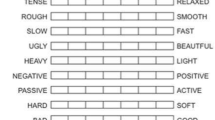Abstract
The present article discusses how events outside a subject’s skin and not accessible to another subject but to an experimenter may contribute to experimental analyses of private events. Of 16 undergraduates, 8, referred to as instructors, first learned conditional discriminations (i.e., 81 C1, 82C2, 83C3, and 84C4) in a standard matching-to-sample (MTS) task with the stimuli 8s as the samples and the stimuli Cs as the correct comparisons. Then the other 8 subjects, learners, were exposed to modified MTS trials in which responses of the learnElrs were reinforced or punished not by the experimenter but by the instructors. Conditional discriminations to be established were A 1 C1, A2C2, A3C3, and A4C4, in which the sample stimuli As were presented simultaneously with the stimuli 8s so that the instructors could not see the As but only the 8s. For 2 of the 8 pairs, the learners learned the AC conditional discriminations from the instructors who were not accessible to the stimuli As. Functionally, private events have been defined by their accessibility rather than their structure (e.g., Skinner, 1953). In this context, therefore, the stimuli As may be characterized as a kind of private events within the present 2 pairs of instructors and learners.
Similar content being viewed by others
References
ANDERSON, C. M., HAWKINS, R. P., FREEMAN, K. A., & SCOTTI, J. R. (2000). Private events: Do they belong in a science of human behavior? Behavior Analyst, 23, 1–10.
ANDERSON, C. M., HAWKINS, R. P., & SCOTTI, J. R. (1997). Private events in behavior analysis: Conceptual basis and clinical relevance. Behavior Therapy, 28, 157–179.
BANDURA, A. (1977). Self-efficacy: Toward a unifying theory of behavioral change. Psychological Review, 84, 191–215.
CRITCHFIELD, T. S., TUCKER, J. A., & VUCHINICH, R. E. (1998). Self-report methods. In K. A. Lattal & M. Perone (Eds.), Handbook of research methods in human operant behavior (pp. 435–470). New York: Plenum Press.
GUTHRIE, E. R., & HORTON, G. P. (1946). Cats in a puzzle box. New York: Rinehart.
HORNE, P. J., & LOWE, C. F. (1993). Determinants of human performance on concurrent schedules. Journal of the Experim Emtal Analysis of Behavior, 59, 29–60.
LAMAL, P. A. (1998). Advancing backwards. Journal of Applied Behavior Analysis, 31, 705–706.
MAHONEY, M. J. (1977). Cognitive therapy and research: A question of questions. Cognitive Therapy and Research, 1, 5–16.
SIDMAN, M. (1960). Tactics of scientific research: Evaluating experimental data in psychology. New York: Basic Books.
SKINNER, B. F. (1945). The operational analysis of psychological terms. Psychological Review, 52, 270–277.
SKINNER, B. F. (1953). Science and human behavior. New York: Macmillan.
SKINNER, B. F. (1974). About behaviorism. New York: Vintage Books.
TAYLOR, I., & O’REILLY, M. F. (1997). Toward a functional analysis of private verbal self-regulation. Journal of Applied Behavior Analysis, 30, 43–58.
ZURIFF, G. E. (1984). Radical behaviorism and theoretical entities. Behavioral and Brain Sciences, 7, 572.
ZURIFF, G. E. (1985). Behaviorism: a conceptual reconstruction. New York: Columbia University Press.
Author information
Authors and Affiliations
Corresponding author
Additional information
Part of this article was presented at the 28th International Congress of Psychology, Beijing, China, August 2004
Rights and permissions
About this article
Cite this article
Okouchi, H. An Experimental Analysis of Another Privacy. Psychol Rec 56, 245–257 (2006). https://doi.org/10.1007/BF03395548
Published:
Issue Date:
DOI: https://doi.org/10.1007/BF03395548




